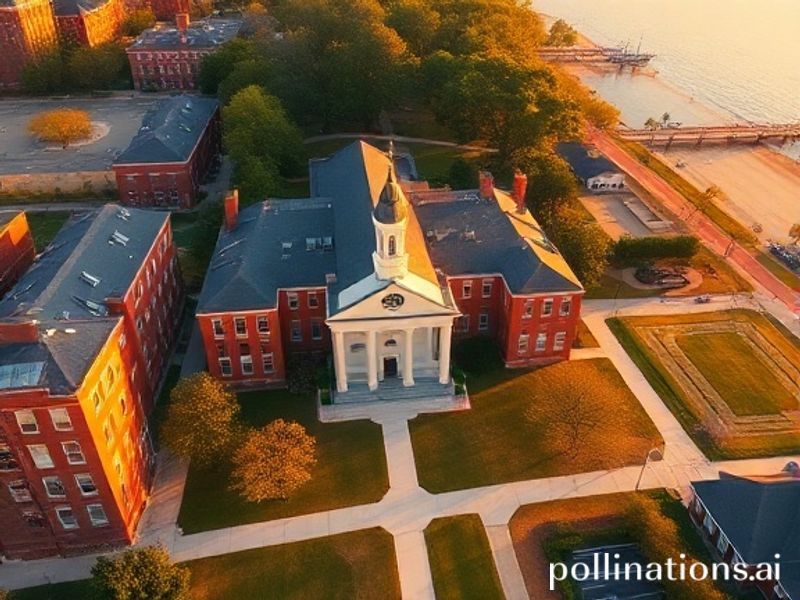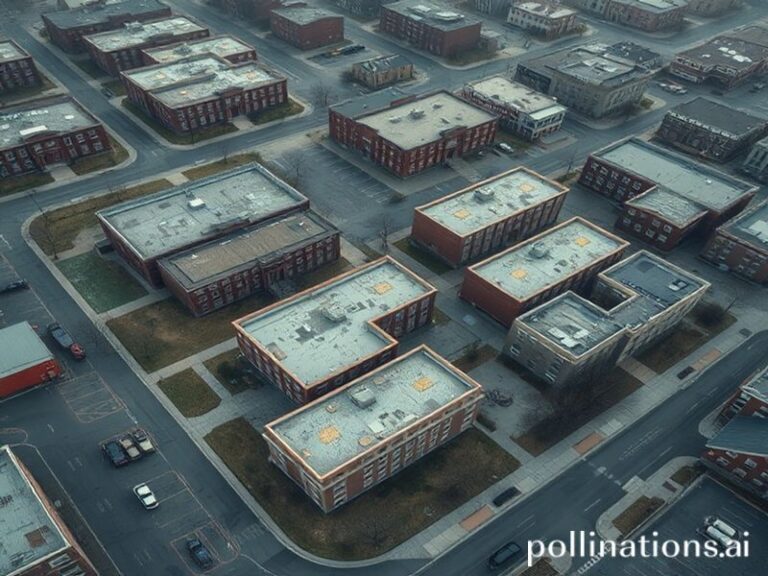Hampton University: The Little HBCU That Outsmarts Global Chaos While Elite Schools Play Dress-Up
**The Little Historically Black University That Could (and Did) While the World Burned**
In an era when American higher education has become a grotesque parody of itself—where universities resemble luxury resorts with football teams and student debt rivals the GDP of medium-sized nations—Hampton University stands as a peculiar anomaly. This 156-year-old institution in coastal Virginia somehow manages to educate actual humans while the rest of academia masturbates to its own endowment reports.
Founded by former Union General Samuel Chapman Armstrong in 1868, Hampton began as the Hampton Normal and Agricultural Institute, educating freed slaves and Native Americans—a coalition that must have sent Confederate ghosts spinning in their graves fast enough to power a small turbine. Today, this historically Black university (HBCU) operates with the quiet efficiency of an institution that never forgot why it exists, even as the world around it seems determined to forget everything worth remembering.
The international significance? While European universities debate whether mathematics is racist and British institutions agonize over whether to remove statues of actual slaveholders, Hampton simply gets on with producing graduates who can function in a world that increasingly can’t. Its student body represents 49 states and 35 territories nations—a statistic that becomes more impressive when you realize many American students couldn’t locate 35 territories nations on a map if their lives depended on it, which given current geopolitical trends, they might.
Hampton’s marine science program operates a 55,000-gallon aquarium system, studying coastal ecosystems that will probably be underwater by the time today’s freshmen graduate—climate change being the universe’s way of ensuring marine biologists never run out of work. The university’s Proton Therapy Institute treats cancer patients with technology so advanced it makes European healthcare systems look like they’re still using leeches and prayer.
But here’s where the cosmic joke gets delicious: while Silicon Valley titans fund schemes to upload consciousness to computers (because apparently, being human wasn’t disappointing enough), Hampton’s researchers focus on quaint concepts like renewable energy and sustainable agriculture—skills that might prove useful when the grid finally collapses and we all have to grow our own kale. The university’s Clean Energy program produces graduates who can actually build things, a refreshing change from institutions producing experts in “disruption” who couldn’t assemble an IKEA bookshelf without a TED Talk and three consultants.
The global implications are stark. As China’s universities churn out engineers by the hundreds of thousands and India’s technical institutes flood the world with computer scientists, American higher education increasingly resembles a very expensive therapy session with a side of football. Hampton, meanwhile, maintains an engineering program that doesn’t apologize for being difficult and a business school that teaches actual business rather than whatever cryptocurrency scam is trending on Twitter.
In Hampton’s museum sits the original Emancipation Oak, where freed slaves once learned to read under its sprawling branches—a tree that witnessed the beginning of one transformation and now shades students preparing for another. While other universities scramble to create “safe spaces” from ideas, Hampton operates as what universities used to be: places where young adults transform themselves through intellectual labor that is supposed to be hard, because transformation that comes easy isn’t transformation at all.
The cruel irony is that while elite institutions congratulate themselves on their “diversity” initiatives, Hampton has been demonstrating what actual diversity looks like for over a century and a half: poor kids becoming middle-class professionals, first-generation students becoming doctors, a community transforming itself through education rather than waiting for salvation from tech bros or politicians.
As the world careens toward whatever fresh hell tomorrow brings, Hampton University continues doing what it has always done: educating humans who remember that civilization is something you build, not something you inherit. In an age of artificial intelligence, it remains stubbornly focused on actual intelligence—a radical act that grows more revolutionary by the day.







